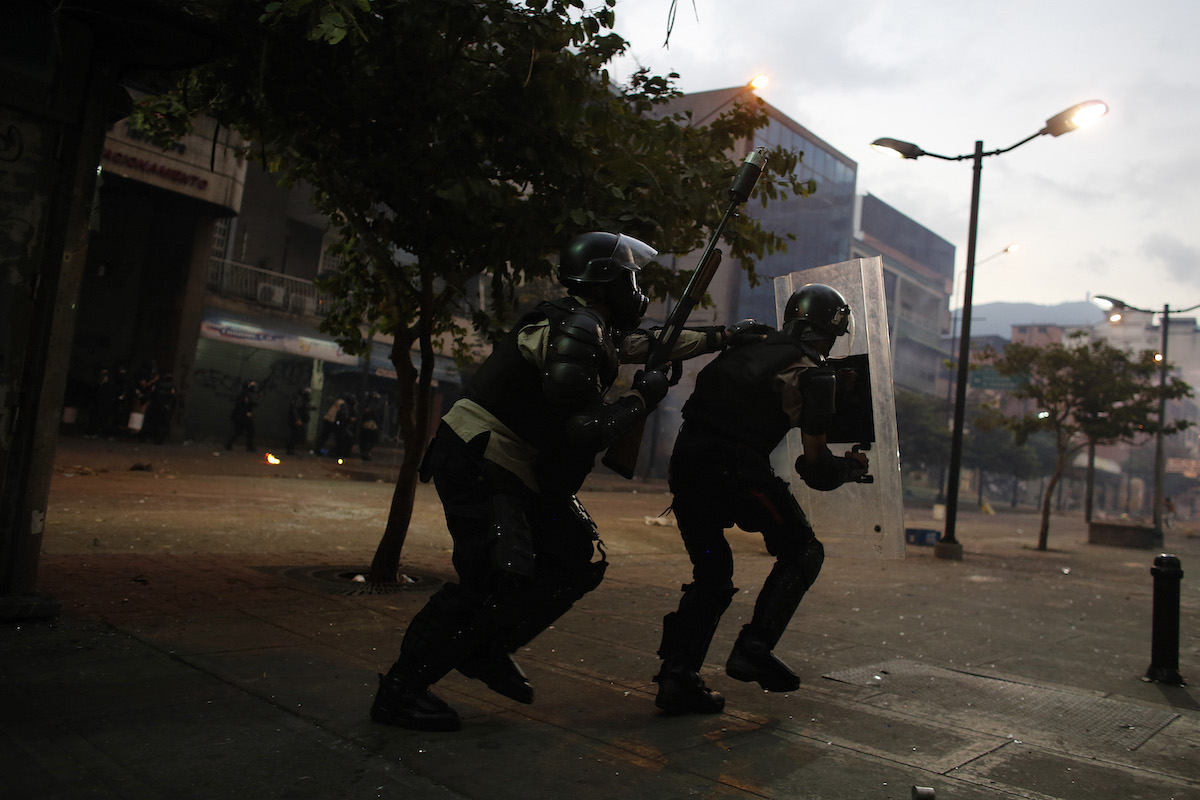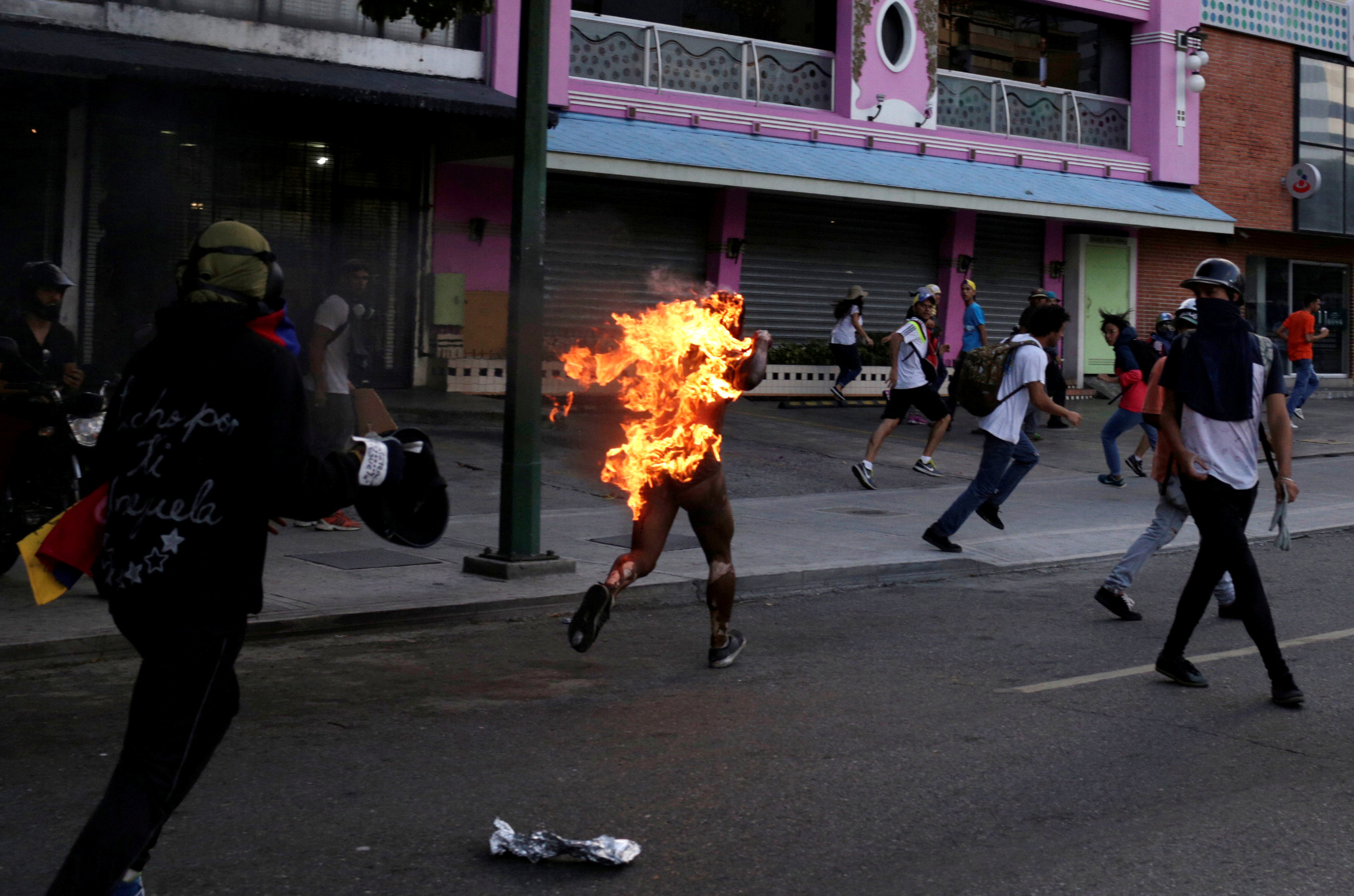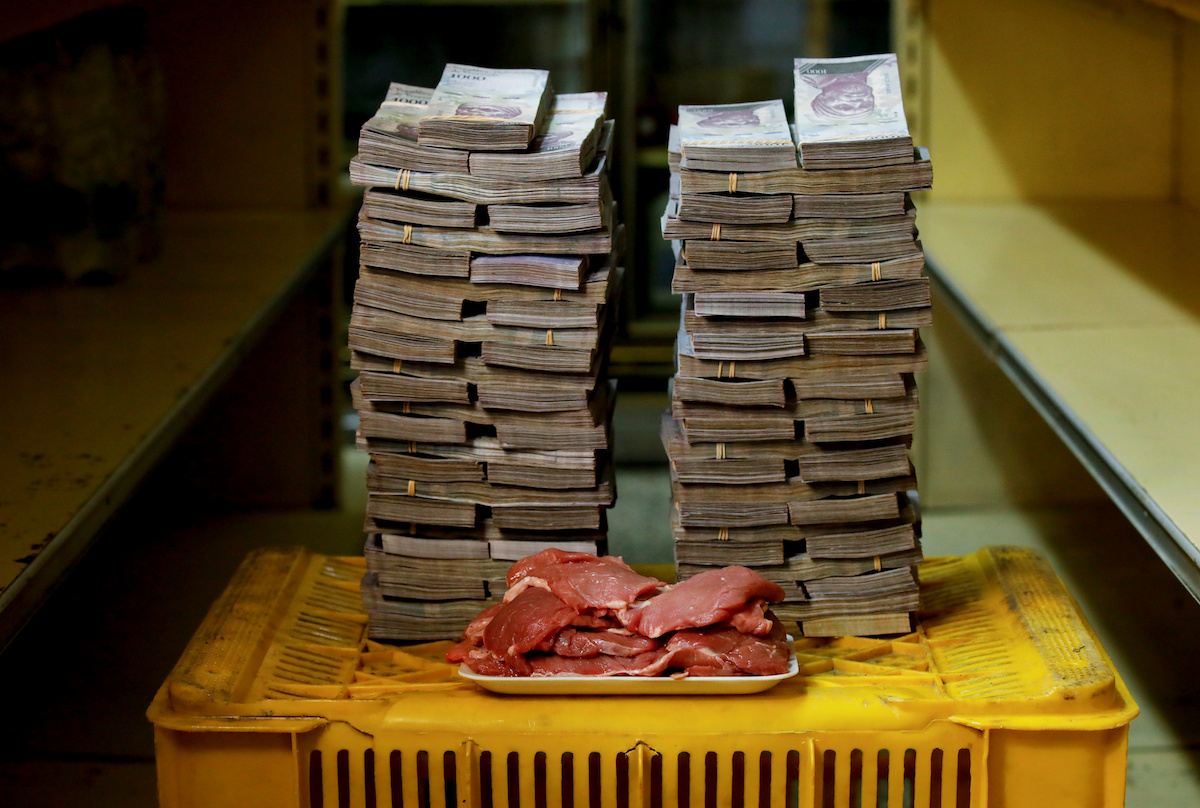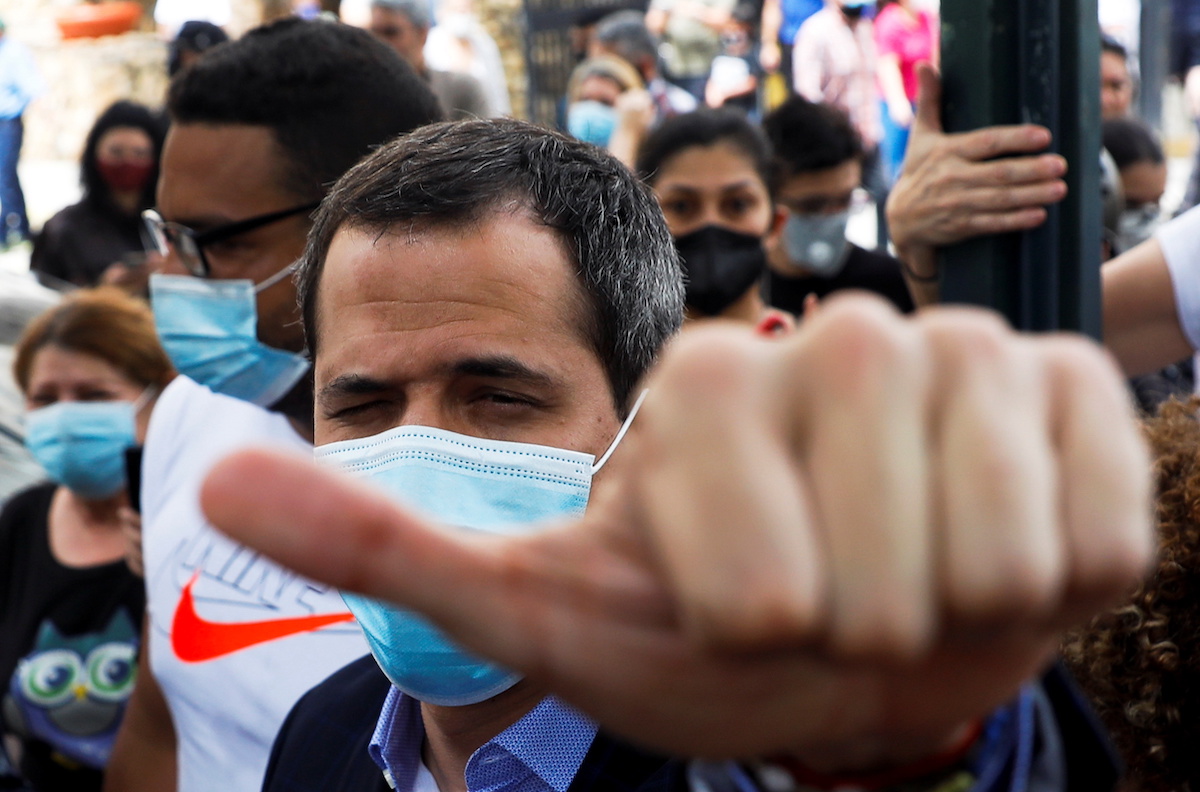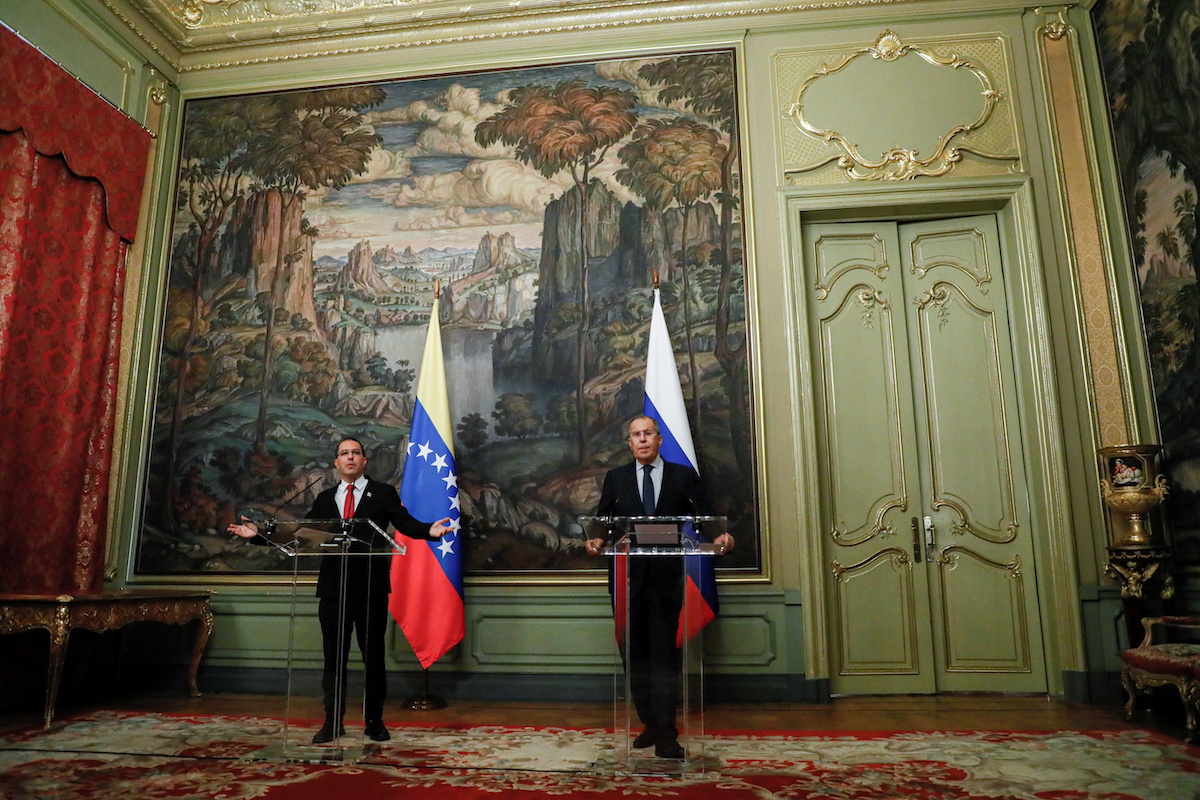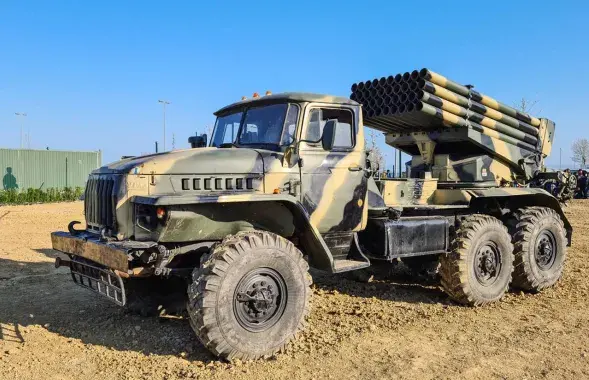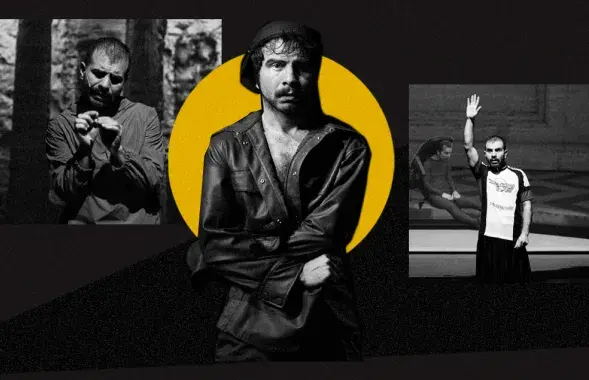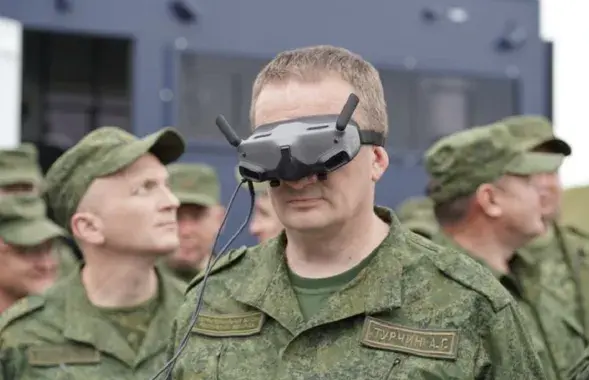Force, duality of power and talks: how Belarus somewhat resembles Venezuela

A protester in Caracas after the presidential elections / Reuters
Venezuela and Belarus are both going through some issues. While not entirely the same, they are very similar. Experts came to that conclusion as early as a year ago. Euroradio looks for similarities and brings up recent Venezuelan history.
Hugo Chávez died in 2013. Nicolás Maduro, a former Minister of Foreign Affairs, picked up after him. In 2014 oil prices went down dramatically, so Maduro didn't get the best of the deals. Instead, he got a high urban violence rate, inflationary pressures, and supply shortage of essential goods.
Maduro had been physically suppressing the riots for years up to the new presidential elections in 2018. A political and social crisis followed the polls that most countries declared invalid. The nation has split down the middle.
Nicolás Maduro kept his position as a head of state, and, at the same time, Juan Guaidó, president of the National Assembly, declared himself an acting president. Maduro described the situation as an attempted coup. He ceased all diplomatic contacts with the United States and accused Western political actors of interfering with the Venezuelan internal political affairs.
The U.S. and other Western countries started to introduce sanctions against the Venezuelan government regularly.
After Belarus used force to crush the protests in 2020, Josep Borrell, High Representative of the European Union for Foreign Affairs and Security Policy, has unambiguously likened Belarus with Venezuela: "We do not recognize him [Lukashenka] as a legitimate president. In the same way, we do not recognize Nicolás Maduro [a president of Venezuela]. From this point of view, both Maduro and Lukashenka's predicaments are the same."
Maduro himself sent Lukashenka a telegram where he congratulated him on winning the elections.
"They made lots of mistakes in Venezuela. Hugo Chávez was a friend of mine, and I mentioned some of the problems to him. He used to consult with us frequently on different matters, including military ones. He came to visit us in person," recounted Lukashenka.
Venezuela after the 2018 elections
After the elections and the ensuing protests, the European Union declared Juan Guaidó, the top opposition leader, an interim president. In contrast, Russia, China, Bolivia, Cuba, Mexico, Nicaragua, Salvador, Iran, Turkey, and South Africa proclaimed their support of Maduro.
The standoff between the opposition and the 'illegitimate government' has been going on for years. As of now, Maduro is not willing to relinquish the throne, but he is ready to negotiate with the opposition. Guaidó is virtually leaving the political scene; in January, the E.U. countries stopped treating him as an interim president of Venezuela.
It's not getting better in Venezuela, and nothing suggests that overcoming the crisis will be fast. The sanctions are still in place, the coronavirus pandemic continues, and oil prices are highly volatile.
Just as ten years ago, Venezuelans are still complaining about low salaries and lack of store-bought goods. Gross domestic product shrunk by a third in 2020, and inflation keeps on breaking every world record.
Why is Lukashenka detaining everyone and Maduro is not?
Juan Guaidó is still a free man. Even breaking a travel ban put on him by The Supreme Tribunal of Justice did not impact his liberties. He has pointedly left the country two times, once for Washington and then for Latin American countries. Both times he came back to his homeland unhindered.
Maduro threatened to put Guaidó under arrest but never actually did it. Probably, not to escalate the conflict and "make him look like a political prisoner in the eyes of the Western countries." "The minute the public prosecution office and the court issue the arrest warrant, I will not falter to comply," Maduro said.
""If we had detained Guaidó, he'd be a hero now. He'd be both a national and international symbol, a martyr for the U.S. That's why we decided to let him destroy himself," Freddy Bernal, a former mayor of the Libertador Municipality in Caracas, claimed in an interview with the Spanish daily newspaper ABC.
On par with Lukashenka, Maduro may claim complete control of the army, the intelligence services, and the police with certainty.
Financial support for the military men is many folds more significant than the income of a doctor or a teacher.
Sanctions all the way
In July 2020, the U.K. Supreme Court ruled to deny the government of Venezuela access to the Venezuelan gold from the gold reserves held in the Bank of England. Before that, Maduro's government tried to withdraw $1 billion worth of gold, saying they needed the money to fund the coronavirus pandemic response.
After the mass protests in Venezuela, most of the E.U. and key Latin American countries stopped associating with the Venezuelan government. Caracas still gets support from Russia and China, though.
The International Monetary Fund that issued almost $1 billion to Belarus didn't give it to Venezuela.
Russia is also actively helping the country fight the coronavirus pandemic. Maduro earlier stated that he was ready to become the first Venezuelan to be vaccinated with the Russian vaccine.
Russian government officials, in return, have acknowledged Maduro as the sole legitimate leader of the country on more than one occasion. They also made a call to the Western countries not to intervene in the internal affairs of Venezuela.
Negotiations with the opposition
A discussion about possible negotiations between Lukashenka's regime and the opposition is currently on in Belarus. Sviatlana Tsikhanouskaya declared her determination to talk about possible crisis recovery solutions as far back as April 2021.
Venezuela is currently in the middle of such negotiations. Back in May, Juan Guaidó proposed to get a dialogue underway. In July, Maduro finally agreed with some conditions, though, four, to be precise. First, all of the country's political powers participate in the negotiations. Second, these powers recognize governmental authorities as legitimate. Third, no violence. And, finally, fourth, cancellation of all existing sanctions against Venezuela.
The opposition wants to make it easier for Venezuela to receive humanitarian aid, including COVID-19 vaccines. It also pushes for a discharge of dozens of its supporters whom it considers political prisoners.
On August 13 in Mexico and with the aid of Norway, the parties managed to work out a memorandum of understanding. It lists several tasks of varied practical value. However, Maduro's first and foremost aim is to cancel all of the sanctions against the country and the government officials.
The whole process is peppered with fights and loud statements. For example, Maduro has been continuously blaming the U.S. and Colombia for trying to ruin the negotiations. So what are the results of round one?
There's not much to tell. After three years of boycott, the Venezuelan opposition announced its participation in the regional elections on November 21. It has also managed to free its leader, convicted for being complicit in the attempted assassination of the head of state back in 2018. The next round of negotiations is to start on September 24.
